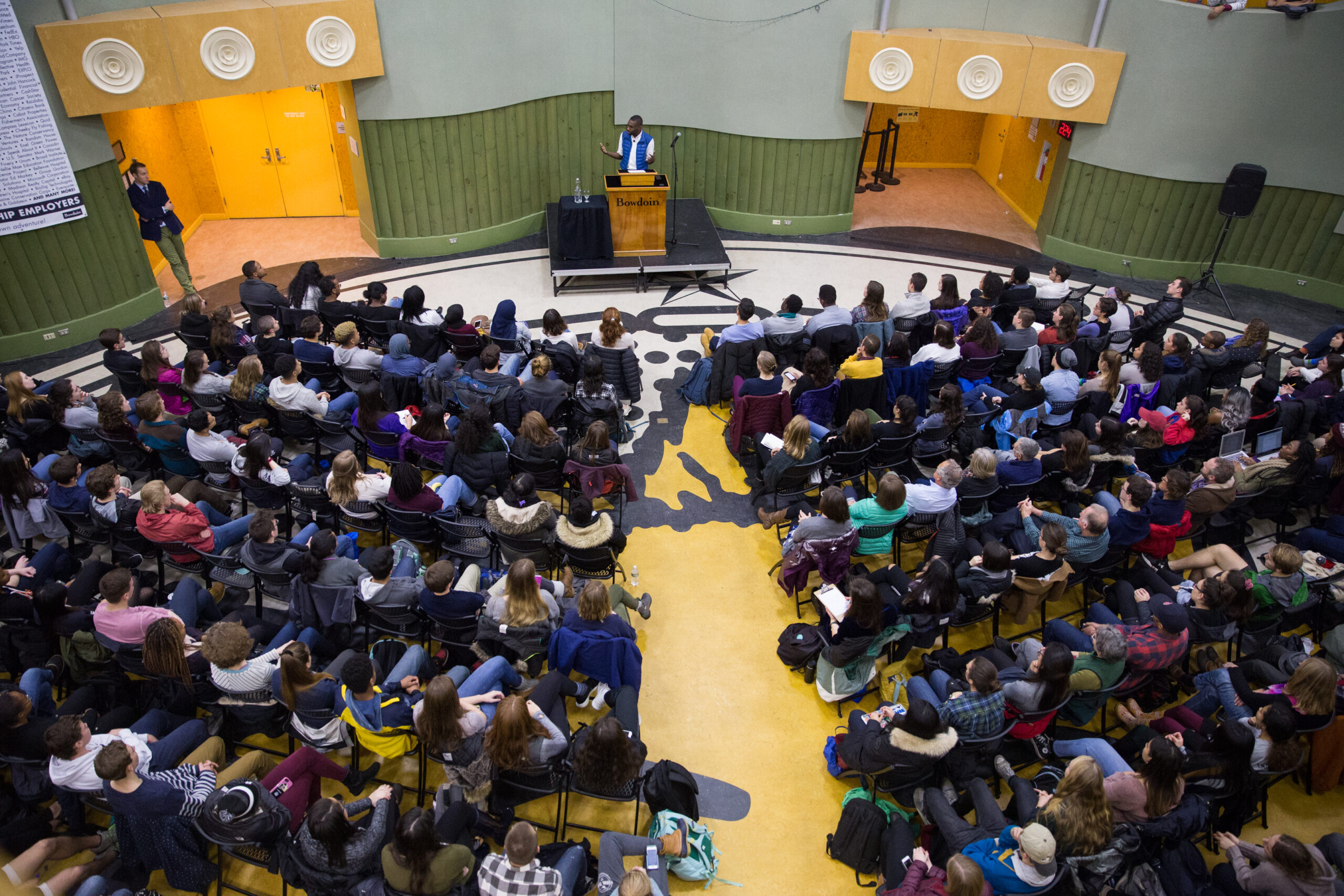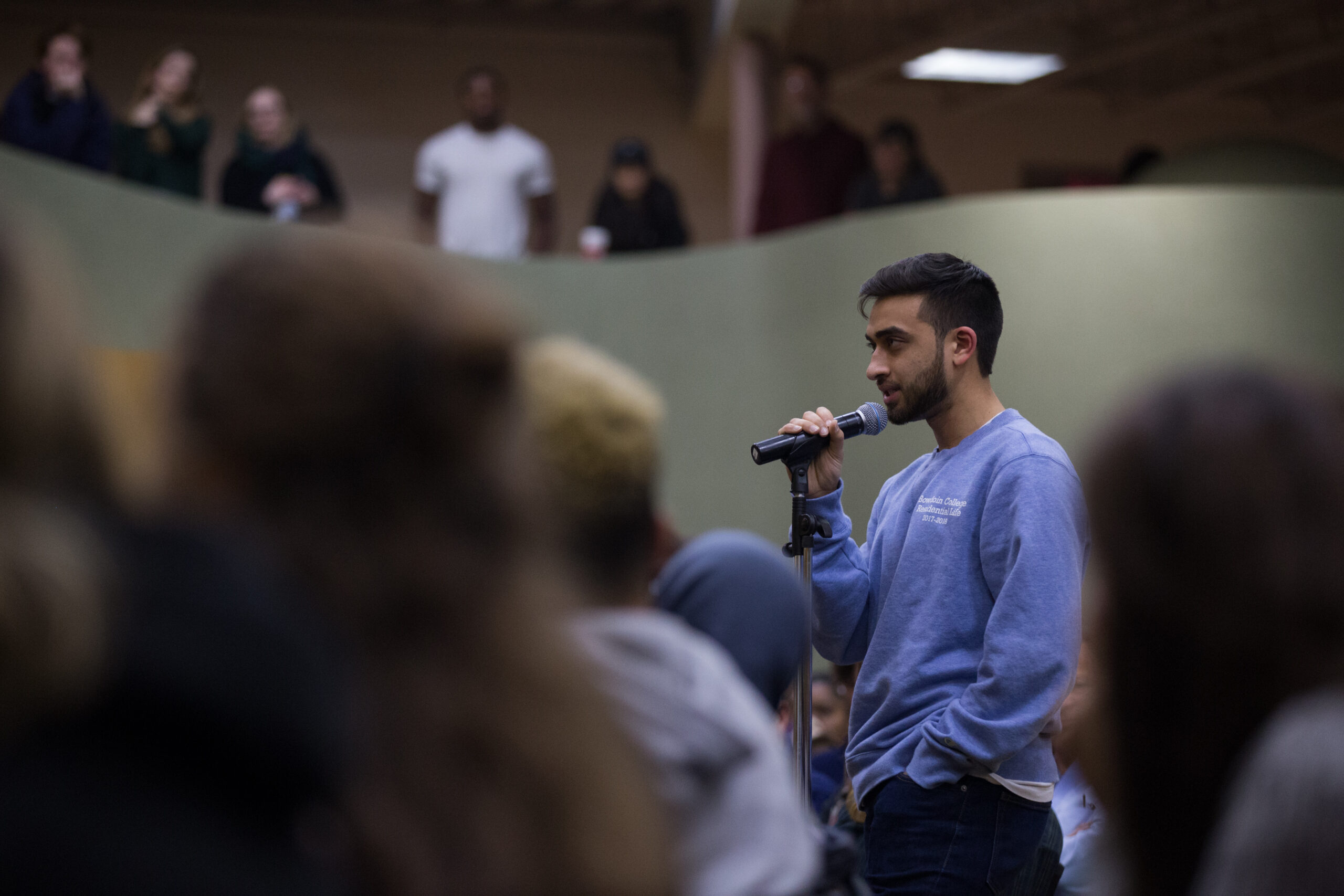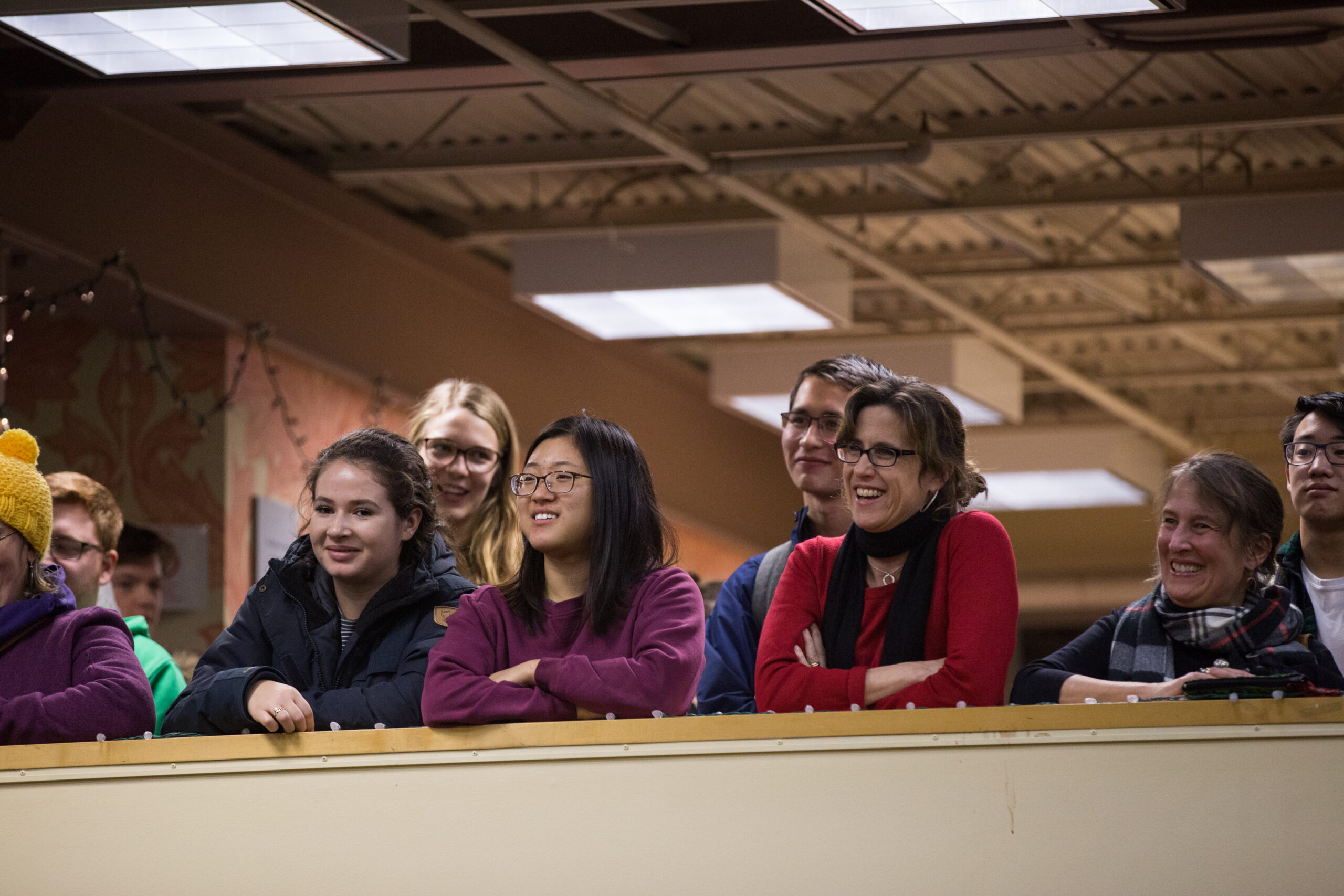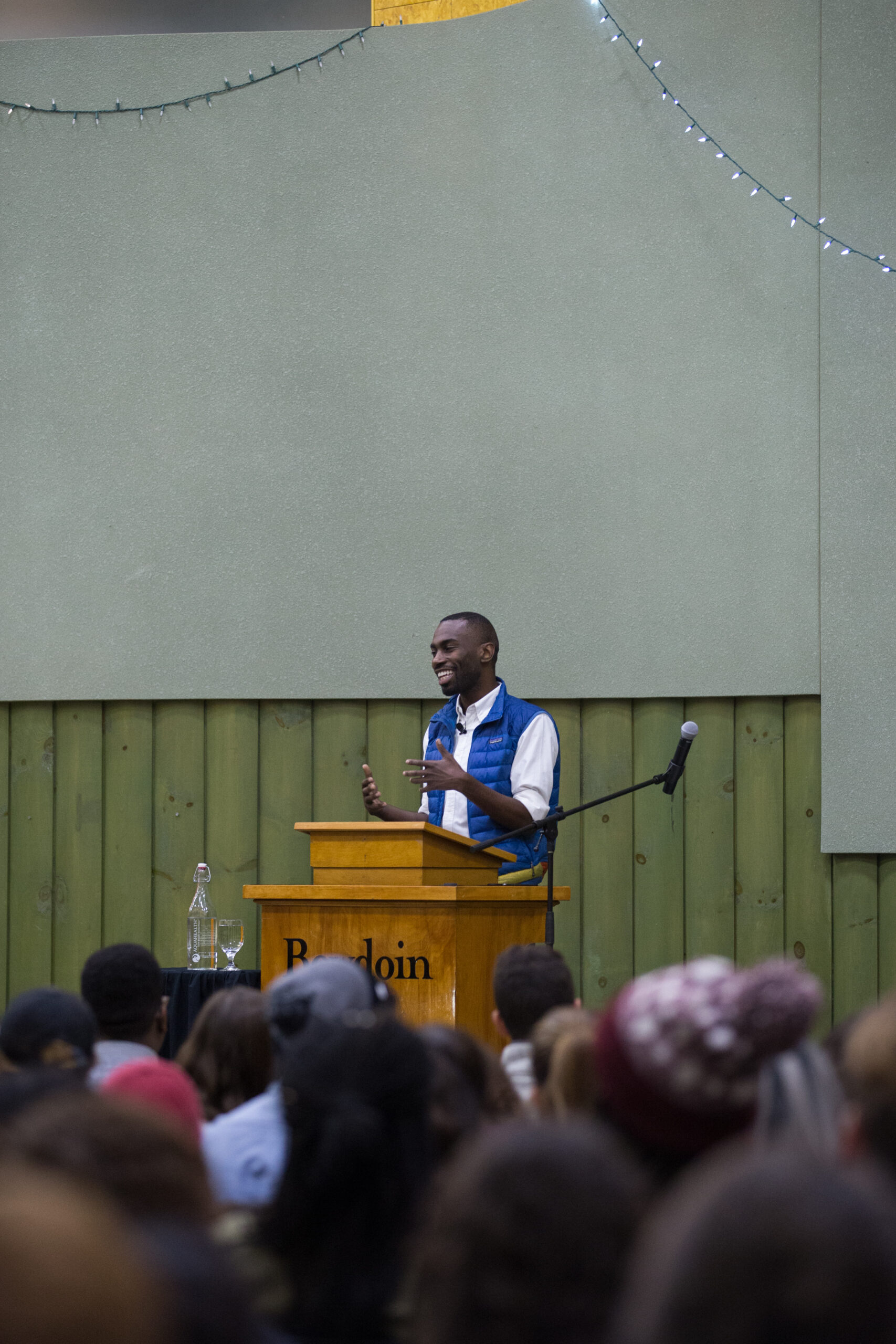Mckesson ’07 addresses activism, action
December 8, 2017
On Tuesday evening, activist, organizer and educator DeRay Mckesson ’07 returned to campus as the keynote speaker for No Hate November. He delivered his address to a packed audience in Morrell Lounge in Smith Union.
Mckesson, an active leader in the Black Lives Matter movement, has used social media, especially Twitter, to spread awareness about the movement, its nationwide protests and the systems of oppression that they seek to change. He currently hosts the podcast “Pod Save the People,” where he interviews experts and political leaders and discusses current events each week.
 Ann Basu
Ann BasuMckesson framed his speech as a list of concrete steps that ordinary people could take to become involved in the resistance movement, rather than as an attempt to rally people around his cause.
“At this moment, there are people who are more in love with the idea of resistance than the work of resistance,” he said. “I don’t think people need more pep talks or need more choir speeches—I think people are looking for a plan in this moment. What do we do to get out of this?”
In his talk, Mckesson addressed the systems of oppression that he sees as continuing to beset the United States, most notably the criminal justice system and its discriminatory treatment of racial minorities. Mckesson urged optimism in spite of the abundant problems that the country faces, arguing that imagining a world that is more equitable and just than the one in which we currently live is one of the most important tasks we can undertake.
“If your dream will only change you, you haven’t dreamt big enough. And if you get anything from this, you will take away this idea that you have to dream in a way that if you got everything you dreamed for, it would change the world,” he said. “Your responsibility to the common good and to each other and to this world is to dream a dream big enough that is rooted in equity and justice, one that makes all of us brothers and sisters and siblings and one that eventually gets us free.”
 Ann Basu
Ann BasuAdvocating for a “responsible optimism,” he said that “I am reminded that people made this system, and if people made it then we can make it differently.”
“Our optimism has to be rooted in reality. It has to be rooted in a deep understanding of how systems and structures work today,” he continued.
Still, Mckesson said that the work of righting racial injustices must not only be the work of people of color. Those who aren’t affected by racial bias must also be involved and asking these people to think through issues on a personal level will help achieve this goal.
“If the goal is to help them learn, I think that we have to share the cognitive work,” he said.
“I want you to have to think through this deeper than you’re thinking of it. People say Mike Brown stole something from the convenience store. I just say, should Mike Brown be alive today or not? I want you to work through this issue. I’m not going to preach the whole time, because when you preach they just say no,” he continued.
BSG Vice President for Student Affairs Salim Salim ’20 felt that Mckesson’s talk was conducive to the goal of No Hate November because it not only raised awareness but also encouraged action.
 Ann Basu
Ann Basu“The purpose of No Hate November is to raise awareness about people and issues that have been traditionally marginalized and to help project these issues onto the greater community at Bowdoin,” said Salim. “We’re just going to be the bystanders if we do not stand up for these kinds of issues … I think that as a top liberal arts college like Bowdoin, [we] should be tackling these issues head-on from all kinds of ways.”
Theodora Hurley ’20 initially reached out to Mckesson about coming to speak on campus after spending time this past summer listening to his podcast. She felt that Bowdoin students would greatly benefit from hearing Mckesson’s calls for action. Hurley is a resident of Quinby House, which co-sponsored the event.
“Over the course of last year a lot of us got really frustrated with this void between our really strong ideas about justice but also this feeling of inertia, and we don’t know what to do about it,” Hurley said. “It’s hard to activate those values into something tangible that produces change, and I [thought Mckesson] would be the perfect person to speak to that.”
Salim was encouraged by the number of people who came to see Mckesson’s speech.
“We often have these conversations on a small scale where the same audience shows up,” Salim said. “I think what [Mckesson] did yesterday with such a big audience is project these issues onto the greater Bowdoin community.”
Mckesson, who has spoken before at Bowdoin, was excited to return to his alma mater. He spent the day leading up to the event and much of the day following the event meeting with numerous student groups on campus.
“It always feels like a homecoming for me here on campus,” said Mckesson at the beginning of his address. “This was truly a family to me, and I think about it every day and I carry it with me every single day. I think about Bowdoin as the place where I fell in love with my mind, a place where I learned what it meant to dream and believe and imagine, and those in so many ways are the key skills in what it means to organize.”


Comments
Before submitting a comment, please review our comment policy. Some key points from the policy: